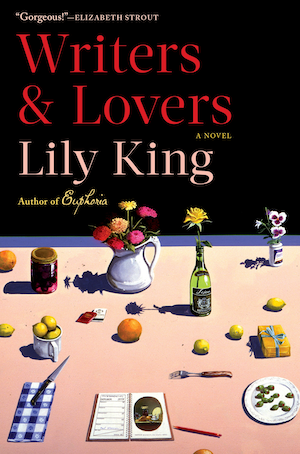There’s a receptionist at a desk in a small waiting area. She gets up and shows me in. Up close Aisha isn’t as severe. She smiles easily and takes off her shoes as soon as she sits back down. She folds one leg under her. We’re in green wing chairs near the window.
»What is amusing you?«
»Oh.« I can’t think of anything to say but the truth. »I was just thinking about this book that has a wing chair in it.« I touch the hard green wing by my head.
»Which book?«
»Woodcutters. By Thomas Bernhard.«
»German?«
»Austrian. Most of it takes place in this wing chair in Vienna.«
»The book takes place in a chair?«
»The narrator has gone to what he calls an artistic dinner at the house of old friends who disillusioned him when he was younger. He hasn’t seen them in thirty years, and he sits in this chair by the door and ruminates about them and their artistic dinners. There are no chapters or paragraphs. It’s just his thoughts, which are punctuated by the phrase ›as I sat in my wing chair.‹ It’s a refrain. ›As I sat in my wing chair.‹ Many times a page. He’s there because a mutual friend committed suicide and they’ve just been to her funeral and it’s really a book about art and becoming an artist and all the ways it ruins people, actually.«
»How did it ruin her, the friend who committed suicide?«
I like the way she seems truly interested in this fictional world, as if it matters, as if she has all the time for it before she starts grilling me about my teaching background. »According to the narrator, she started out as an actress and a dancer, but she met a tapestry artist and married him and channeled all her dreams of artistic greatness and international fame into him, he who would never have pursued it without her driving him on. And she succeeded. As he became more and more renowned, she became more and more miserable, and yet he was actually her work of art, so she kept having to work at it, and eventually she self-destructs. At least that’s what I think it’s about, as I sit in my wing chair.«
She has been smiling the whole time, which makes it hard to stop talking. And talking about characters in books is exciting and soothing to me at the same time.
»Have you always been such an enthusiastic reader?«
»Not really. I liked reading, but I was picky about books. I think the enthusiasm came when I started writing. Then I understood how hard it is to re-create in words what you see and feel in your head. That’s what I love about Bernhard in the book. He manages to simulate consciousness, and it’s contagious because while you’re reading it rubs off on you and your mind starts working like that for a while. I love that. That reverberation for me is what is most important about literature. Not themes or symbols or the rest of that crap they teach in high school.«
Lily King: Writers & Lovers, New York: Grove Press 2021, S. 269ff.


